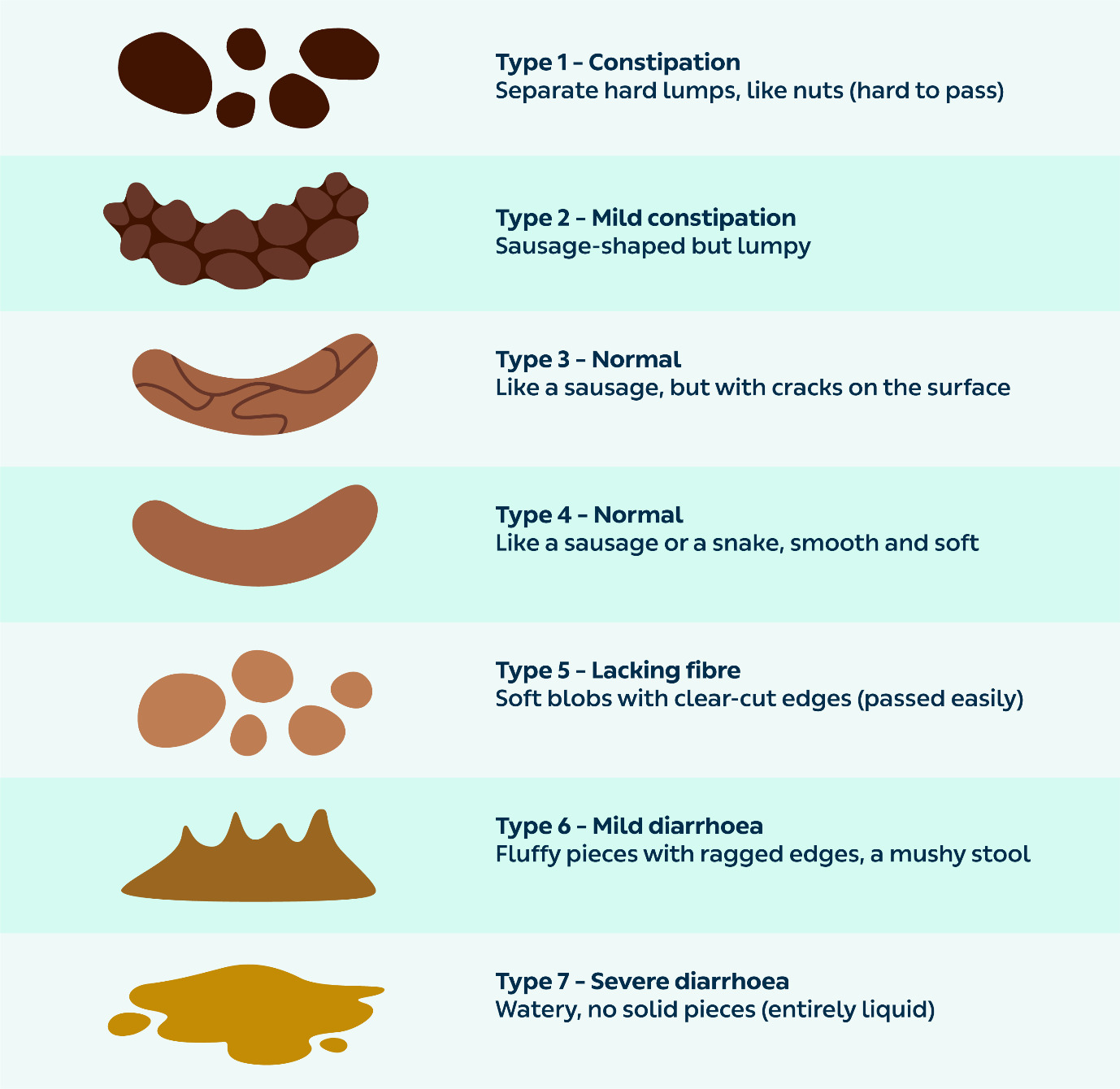
THE TOP THREE most common causes for concern in the clinic are: weight loss, digestive disorders and aesthetic concerns. Below I have outlined some of the basic information about IBS, a very common digestive disorder affecting both men and women of all ages. Though IBS is not life threatening, it can be chronic and have a significant impact on a persons life, making basic things like going out to eat, fitting into tight fitting clothing and travelling a nightmare.
What is Irritable Bowel Syndrome With Constipation (IBS-C)?
Irritable Bowel Syndrome (IBS) is a common digestive disorder affecting 7-21% of the general population. Symptoms include frequent abdominal pain, bloating or discomfort, and changes in the appearance or frequency of bowel movements. IBS-C is a type of IBS in which the abdominal discomfort or bloating happens with constipation. Generally, constipation is when stools don’t pass often enough (less than three times per week). Having hard stools that are difficult to pass or the feeling of an incomplete bowel movement are signs of constipation.
What are the Symptoms of IBS-C?
The symptoms of IBS-C include abdominal pain and discomfort, along with changes in bowel function. Bloating and/or gas also may happen. Changes in bowel function may include straining, infrequent stools, hard or lumpy stools, and/or a feeling that the bowel does not empty completely. Some people may feel as if there is a “blockage” preventing them from passing stools. They may need to press on a part of their body or change body position to help them complete their bowel movement. How often a person passes stool, or the way it appears, may be different when abdominal discomfort is happening. With IBS-C, abdominal discomfort often improves after a bowel movement. In most cases, symptoms are ongoing (chronic), but they may come and go.

What Causes IBS-C-?
The cause of IBS-C is not known. Some experts think that it relates to changes in how the intestines move and contract, or changes in how the gut senses pain. In some patients, IBS-C may happen after a past infection in the gut. It could also be related to changes in the messages between the brain and the intestines. There is evidence that bacteria which are normally found in the gut, or changes to the composition of those bacteria, play a role. In addition, researchers are looking into the role of genetics and/or changes in the immune system.
How Do Doctors Diagnose IBS-C?
The diagnosis is based on a thorough medical history and physical exam. Doctors use a tool called the Rome criteria, a list of specific symptoms and factors that can help determine if someone has IBS-C. The most important of these criteria include the presence of abdominal pain or discomfort and change in bowel habits. There are no lab tests or imaging studies that can confirm a diagnosis of IBS-C.
In certain situations, a limited amount of testing (such as blood work or imaging studies) may be needed to make sure some other condition is not present. There are also “alarm symptoms” that suggest that something other than IBS-C may causing a person’s symptoms. Examples of alarm symptoms include weight loss, bleeding, or if IBS-C symptoms start after age 50 in a person that did not frequently have these symptoms before.
Your brain also plays a role and may respond too much to signals that control your colon. The result: Your intestines squeeze too hard, making food move too quickly through your system. That can cause pain, diarrhoea, and other problems like gas.
What Is the Treatment for IBS-C?
IBS-C is not life-threatening. It can, however, affect a person’s quality of life. There is no cure, so the goal of treatment is to reduce symptoms as much as possible. Treatments may be focused on improving the uncomfortable symptoms of IBS-C – such as abdominal pain and bloating – or on improving bowel function. Treatments include lifestyle modifications, dietary changes, psychosocial therapy, and medications.
When to See the Doctor for IBS-C
If you have chronic symptoms of constipation and discomfort, see your doctor for a diagnosis and treatment plan to help reduce and manage symptoms, improve bowel function and increase comfort. It can make your quality of life better.
In addition, if you use over-the-counter medications regularly to reduce symptoms, you should consult a doctor to determine the best course of treatment.
Also report abdominal discomfort or symptoms that come with weight loss, bleeding, iron deficiency (low levels of iron based on blood tests) or symptoms that start after age 50. Tell your doctor about any personal or family history of gastrointestinal diseases such as cancer or inflammatory bowel disease.
What Causes IBS-D?
Researchers don’t know what causes IBS or IBS-D. We do know that women are more likely to have it than men, and it’s more common in adults under 50. If you have a family member with IBS, your odds of getting IBS or IBS-D go up. With IBS, your colon is more sensitive than normal. It can react to things like stress, bacteria, and even certain foods.
How Is IBS-D Diagnosed?
There isn’t a test that tells you if you have IBS-D (or any kind of IBS). Instead, your doctor will look at your health history and symptoms. If you’ve had abdominal pain and other signs of IBS for at least 3 months, you may have it.
If you have other symptoms, like rectal bleeding, weight loss, or a family history of gastrointestinal cancer, your doctor may want you to have tests to rule out other possibilities.
These can include a blood test to check for celiac disease and a colonoscopy to check for abnormal growths and signs of cancer. (During a colonoscopy, doctors use medication to sedate you, then insert a tube with a tiny camera into your rectum and your large intestine to see if it’s healthy.)
How Is IBS-D Treated?
Getting relief from your IBS-D may take some detective work. You’ll probably need to try several strategies and use many different techniques at a time. Our team can work with you to find an effective plan.
Diet changes: Foods and beverages don’t cause IBS-D, but some may trigger your symptoms or make them worse. Alcohol, drinks with caffeine (like coffee and soda), carbonated drinks, chocolate, sorbitol (an artificial sweetener used in some gums and mints), fried food, and milk products may make IBS-related diarrhoea worse.
Fibre can be helpful for people who suffer from IBS with constipation (IBS-C). But if you have IBS-D, too much fibre can make your symptoms worse.
A low FODMAP diet is often a choice. A form of low carb diet, it limits carbs that are "fermentable oligo-, di-, monosaccharides and polyols" and are notoriously hard to digest.
You may need to experiment to figure out which types of whole grains, beans, fruits, and vegetables agree with your gut.
Be sure to drink at least six to eight glasses of water a day because diarrhoea can cause dehydration.
Exercise can help you feel better and improve the way your bowel functions, too. Massage, yoga, hypnotherapy, and forms of talk therapy can help with stress, which may lessen your symptoms.
Often probiotics (“good” bacteria, which you can get in supplement form or from foods like pickles and sauerkraut) can help relieve IBS symptoms, including diarrhoea.
Stress relief: The link between stress and IBS is complicated. Stress and related issues like anxiety and depression don’t cause IBS. But they can make symptoms like diarrhoea worse. That’s why it’s important for our team to find effective ways to manage your mood.
What is IBS-M
Anybody can get diarrhoea sometimes. The same goes for constipation. But if you get both of them often, you may have a type of irritable bowel syndrome (IBS). Specifically, you may have IBS-M, the mixed type.
As we age, our digestive systems can become more sensitive to certain types of foods and methods of food preparation. While you once may have handled the spiciest of foods without breaking a sweat, now that super-hot chicken curry gives you the digestive drama known as diarrhoea—uncomfortable, unformed, watery stool.
FODMAPs. Fructose, artificial sweeteners, and lactose are part a group of poorly digested sugars that can cause diarrhoea, known as FODMAPs (fermentable oligosaccharides, disaccharides, monosaccharides, and polyols). Other sources of FODMAPs include wheat, rye, onions, garlic, legumes (chickpeas, lentils, beans), honey, pistachios, cashews, asparagus, and artichokes.
Diet Triggers for IBS Diarrhoea
Foods that can make IBS-related diarrhoea worse for some people include:
Too much fibre, especially the insoluble kind you get in the skin of fruits and vegetables.
Food and drinks with chocolate, alcohol, caffeine, fructose, or sorbitol.
Carbonated drinks.
Large meals.
Fried and fatty foods.
Dairy products, especially in people who can’t digest the milk sugar lactose, called lactose intolerance.
Foods with wheat for people who are allergic to or have a bad reaction to gluten.
Better Diet Choices for diarrhoea prone IBS:
Eat a moderate amount of soluble fiber. It adds bulk to your stools. Good sources are the flesh of fruit (not the skin), avocados, pears, figs, dates, nectarines, apricots, flax seeds, and dried fruits.
Don't eat foods at opposite temperatures, such as ice-cold water and steaming hot soup, in the same meal
Stay away from broccoli, onions, and cabbage. They cause gas, which can make you feel worse.
Eat smaller portions.
Drink water an hour before or after meals, not while you eat.
Talk with us if you think you may have a wheat allergy.
To ease symptoms of bloating and gas, try to avoid gassy foods such as beans, Brussels sprouts, wheat germ, raisins, and celery.
Stress and Anxiety Triggers for IBS:
Stress and anxiety can make IBS symptoms worse.
Worries can come from a lot of sources, including:
Work.
Your commute.
Problems at home.
Money problems.
A sense that things are out of your control.
How to Manage Stress:
Choose healthy habits. Eat a well-balanced diet that works for your IBS. Get regular exercise and enough sleep.Do something fun as often as you can. Listen to music, read, shop, or take a walk.Learn better ways to calm down with behavioural therapy. There are a few types: relaxation therapy, biofeedback, hypnotherapy, cognitive behavioural therapy, and psychotherapy
If you feel comfortable, talk to family members, close friends, your boss, or co-workers about your IBS. When they know what’s going on, they can support you and better understand how it affects you.
Drugs That Can Trigger IBS:
Some drugs can trigger constipation or diarrhoea. People with IBS may have trouble with:
Antibiotics.
Some antidepressants.
Medicine made with sorbitol, such as cough syrup.
Menstrual Triggers for IBS.
Women with IBS tend to have worse symptoms during their periods. There's not a lot you can do to prevent it, but you can ease pain and discomfort during that time of the month.
How to Feel Better:
Think about taking birth control pills. They can make your periods more regular. But they can cause side effects, like upset stomach, vomiting, stomach cramps or bloating, diarrhoea, and constipation. Work with your doctor to find one that works without causing other problems. Treat severe PMS. Some drugs that treat depression can help and sertraline.
Other Triggers:
Eating while you work or drive.
Eating too quickly.
Chewing gum.
Not enough exercise.
If you suffer from any of the above symptoms and would like to get your life back on track, please call 052 614 8881 or email info@mareto8020.com to book your consultation.

Subscribe or register today to discover more from DonegalLive.ie
Buy the e-paper of the Donegal Democrat, Donegal People's Press, Donegal Post and Inish Times here for instant access to Donegal's premier news titles.
Keep up with the latest news from Donegal with our daily newsletter featuring the most important stories of the day delivered to your inbox every evening at 5pm.